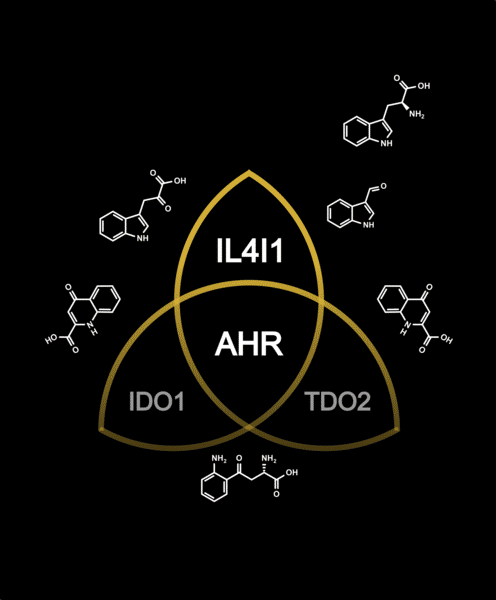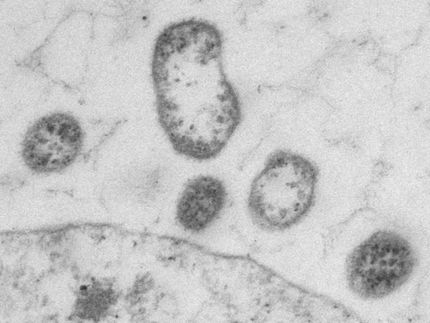A potential new target for immunotherapies in cancer
Compounds that inhibit metabolic enzyme IL4I1 could open up new opportunities for cancer therapy
Advertisement
The metabolic enzyme IL4I1 (interleukin-4-induced-1) promotes the spread of tumor cells and suppresses the immune system. This was discovered by scientists from the Berlin Institute of Health (BIH) together with colleagues from the German Cancer Research Center (DKFZ) in Heidelberg. The enzyme is produced to a greater extent in tumors and activates the dioxin receptor. Compounds that inhibit IL4I1 could open up new opportunities for cancer therapy in the future.

Luis F. Somarribas Patterson
Immunotherapies activate the body's own immune response against tumors and are currently revolutionizing cancer therapy. Despite some astonishing individual successes only a small number of patients benefit from current immunotherapies. The teams led by Christiane Opitz and Martina Seiffert, both at the DKFZ, and Saskia Trump, from the Berlin Institute of Health (BIH), investigated the molecular mechanisms that tumors use to escape their destruction by the immune system.
The aryl hydrocarbon receptor (AHR) is also known as the dioxin receptor because it mediates the toxic effect of dioxins. However, not only toxins, but also the body's own metabolites can activate the receptor. One example are degradation products of the amino acid tryptophan, which we take in with our food as a building block of proteins. Tumors use these metabolic products to their advantage by promoting the mobility of tumor cells and weakening the immune response against tumors. "Currently there is insufficient knowledge on how these degradation products are produced," explains Ahmed Sadik from the German Cancer Research Center (DKFZ). In order to change this, he and his colleagues investigated in more than 32 different tumor types which tryptophan-degrading enzymes are associated with an activation of the dioxin receptor.
One molecule in particular caught the scientists' eye: the enzyme IL4I1. No other tryptophan-catabolizing enzyme associated with AHR activity as frequently as IL4I1. "The metabolites formed by IL4I1 bind to the dioxin receptor and activate it, which leads to the suppression of immune cells and can impair the body’s defense against the tumor ," explains Saskia Trump, who heads the Epigenetics research group of the Molecular Epidemiology Unit at the Berlin Institute of Health. In patients with gliomas, malignant brain tumors, the survival probability decreased when the enzyme IL4I1 was present in higher concentrations in these tumors.
A mouse model for chronic lymphocytic leukemia (CLL), a type of blood cancer, demonstrated that the enzyme promotes cancer through its effects on the immune system. “In animals that do not produce IL4I1 in the tumor micro-environment due to genetic changes, the immune system is significantly more successful in preventing the cancer progression," explains Martina Seiffert, DKFZ.
"IL4I1 has great potential as a drug target. So far, substances that inhibit tryptophan metabolism have failed in clinical studies because the tumors did not respond to them. This might be due to the fact that the role of IL4I1 has been disregarded and it has not yet been tested as a target molecule," said Christiane Opitz, highlighting the potential clinical application of the study results.



























































